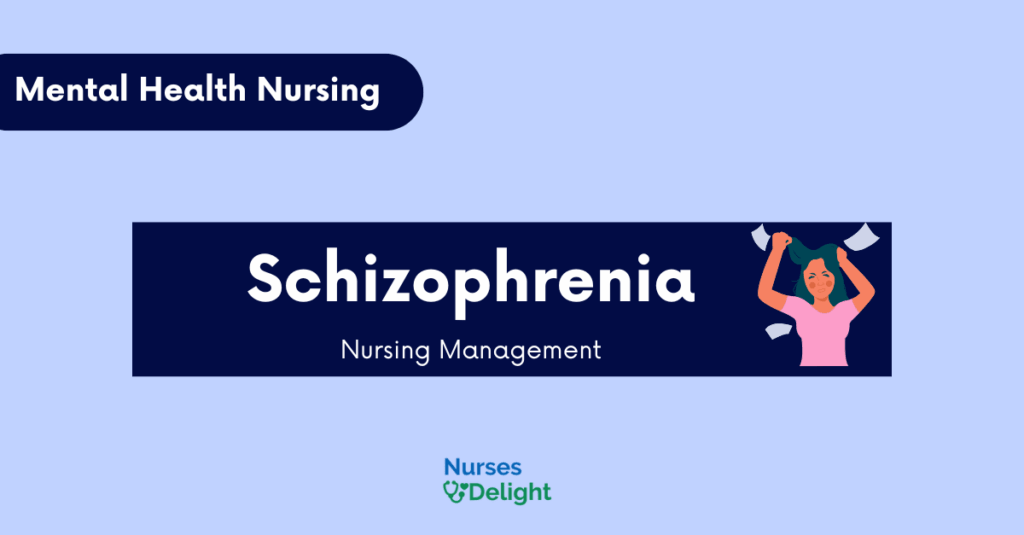Schizophrenia is a chronic, severe mental disorder that is characterized by distortions in thinking, perception, emotions, language, sense of self, and behavior.
Schizophrenia patients often have difficulty distinguishing between what is real and what is not, leading to impaired functioning in daily life.
Causes and Risk Factors
The exact cause of schizophrenia is idiopathic, but it is believed to result from a combination of biological, genetic, and environmental factors:
- Genetic predisposition: A strong family history of schizophrenia increases risk.
- Neurochemical factors: Imbalances in neurotransmitters, particularly dopamine and glutamate, are linked to the disorder.
- Brain structure abnormalities: Changes in brain volume and function, especially in the frontal and temporal lobes.
- Environmental influences: Prenatal infections, malnutrition, psychosocial stress, and substance abuse (especially cannabis) can trigger onset in vulnerable individuals.
Clinical Manifestations
Schizophrenia symptoms are categorized into positive, negative, mood, and cognitive symptoms:
Positive symptoms (additions to normal behavior):
- Hallucinations (especially auditory)
- Delusions (false, fixed beliefs)
- Disorganized speech or behavior
- Thought disorders
Negative symptoms (loss of normal functions):
- Flat affect (lack of emotional expression)
- Social withdrawal
- Lack of motivation or interest (avolition)
- Poor speech output (alogia)
Mood symptoms
- Excessive happiness
- Depression
Cognitive symptoms:
- Impaired memory and attention
- Difficulty with decision-making and problem-solving
Diagnosis of Schizophrenia
Diagnosis is based on clinical evaluation following the DSM-5 criteria, which require at least two major symptoms (such as delusions, hallucinations, or disorganized speech) lasting for at least six months, with significant social or occupational dysfunction.
A complete medical and psychiatric assessment is essential to rule out other causes such as substance-induced psychosis or brain disorders.
Management of Schizophrenia
Schizophrenia requires long-term, multidisciplinary management combining pharmacological and psychosocial approaches.
1. Pharmacological Management
Antipsychotic medications are the mainstay of treatment.
- Typical (first-generation) antipsychotics: Haloperidol, Chlorpromazine
- Atypical (second-generation) antipsychotics: Risperidone, Olanzapine, Clozapine, Quetiapine
- Side effects may include extrapyramidal symptoms, weight gain, sedation, and metabolic changes.
- Medication adherence is critical to prevent relapse.
2. Psychosocial Interventions
Psychosocial interventions are non-medication approaches that aim to help individuals with schizophrenia improve their social, emotional, and occupational functioning. The main goal is to help patients cope with symptoms, prevent relapse, and reintegrate into the community. The key types of psychosocial interventions include:
Cognitive-behavioral therapy (CBT)
CBT helps patients identify and challenge distorted thoughts or beliefs associated with hallucinations and delusions.
- Purpose: To reduce distress caused by psychotic symptoms and improve coping.
- Example: A patient who believes others are plotting against them learns to test these beliefs and consider alternative explanations.
- Nursing Role: Encourage participation, reinforce progress, and collaborate with therapists to monitor behavioral changes.
Family therapy and education
Families often experience stress, guilt, or confusion about the illness. Family therapy provides education and support to help them cope effectively.
- Purpose: To improve family communication, reduce conflict, and enhance understanding of schizophrenia.
- Key Aspects:
- Educate family members about the nature, symptoms, and treatment of schizophrenia.
- Teach strategies for managing relapse warning signs.
- Encourage open, supportive communication at home.
- Nursing Role: Act as a liaison between family and healthcare providers, provide emotional support, and promote involvement in care planning.
Social skills training
People with schizophrenia often have difficulty interacting with others, maintaining relationships, or handling daily life tasks.
- Purpose: To improve communication, assertiveness, and problem-solving skills.
- Method: Role-playing, modeling, and group exercises are used to practice appropriate social behavior.
- Nursing Role: Reinforce skills learned during sessions, encourage participation in group activities, and provide feedback on progress.
Vocational rehabilitation
Many individuals with schizophrenia struggle to maintain employment due to cognitive and social challenges.
- Purpose: To help patients gain or regain work-related skills and independence.
- Programs may include:
- Job training and placement
- Supported employment
- Education or skill-building workshops
- Nursing Role: Motivate the patient to set achievable goals, coordinate with occupational therapists, and monitor stress or symptom triggers related to work.
Support groups
Support groups allow individuals to share experiences, learn coping strategies, and reduce feelings of isolation.
- Purpose: To promote emotional healing and build a sense of belonging.
- Nursing Role: Encourage attendance, facilitate group discussions when needed, and identify patients who may benefit from peer mentorship.
Nursing Management
Nursing Assessment
- Evaluate patient’s thought content, perception, and behavior.
- Assess risk for self-harm or harm to others.
- Monitor response and side effects of medications.
- Assess family understanding and coping mechanisms.
Nursing Interventions
- Establish trust through consistent, non-threatening communication.
- Maintain safety: remove harmful objects and observe for suicidal or violent tendencies.
- Promote medication adherence by educating patients about the benefits and potential side effects.
- Encourage reality orientation: use short, clear statements and avoid arguing with delusions.
- Promote socialization through group activities and support networks.
- Educate family members on the nature of illness, relapse prevention, and community resources.
Prognosis
Although schizophrenia is a lifelong illness, early diagnosis and consistent treatment can significantly improve outcomes. Many patients can lead productive lives with proper medication, therapy, and social support.

